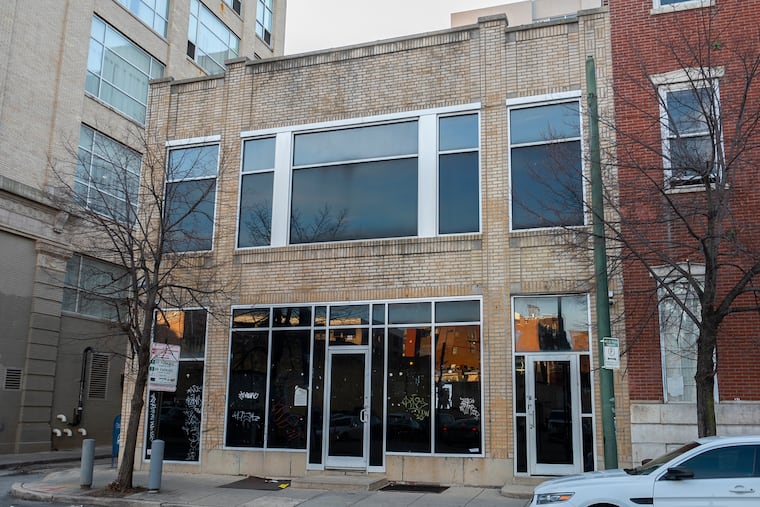Philly Council takes another step toward establishing a citywide music office
Philly Council voted Thursday to take another step toward establishing a citywide music office, part of a larger initiative local artists and industry experts hope will reinvigorate the music economy.

Philadelphia City Council voted Thursday to take another step toward establishing a permanent citywide music office and bringing new life to Sigma Sound Studios — the brick-and-mortar birthplace of the Philadelphia Sound — as part of an initiative local artists and industry experts hope will reinvigorate the city’s music economy.
To a standing ovation, Council unanimously adopted a resolution recognizing 10 recommendations from its Music Industry Task Force to support the growth of the city’s music sector.
The task force, established in 2017, includes local musicians and vocalists, lyricists, businesspeople, historians, and industry experts passionate about the Philadelphia music scene.
» READ MORE: What does Philadelphia sound like? Here’s what four composers came up with.
While not binding, the Council approval marked a milestone in a “long journey” that began with discussions more than a decade ago and through the pandemic, said Councilmember David Oh, who introduced the resolution.
“All the artists, producers, or everyone involved has been stalwart in this and just so dedicated — all of this is really a volunteer effort,” Oh said. “And after the pandemic being hit so hard, you know, with the live music venues and such uncertainty, they have stayed together and continue to push this forward. This report is just that significant.”
The task force recommended the city:
Establish a “centralized, permanent” Philadelphia music office or commission.
Develop a campaign for fair compensation of musicians.
Fund sustained efforts to grow Philadelphia’s music economy.
Create a museum or cultural center honoring the city’s music history in the Sigma Sound building on North 12th Street, where the Philadelphia Sound was coined and where artists like Stevie Wonder, Gladys Knight, and David Bowie recorded.
Market the strengths of Philadelphia’s musical history and its current music venues and artists.
Promote Philly’s music in Philadelphia International Airport and 30th Street Station.
Establish temporary parking areas for artists to load and unload equipment from concert venues without receiving parking tickets.
Designate hubs for creating concert promotional materials.
Encourage music venues to cater to all ages.
Use zoning and development policies to benefit the music industry.
The goal, said David Ivory, a music producer and Grammy-nominated sound engineer who chairs the task force, is to put Philadelphia on par with cities like Nashville; Austin, Texas; and New York, which all have designated music offices and thriving creative economies.
“We have all the ingredients to do that here in Philadelphia,” Jack McCarthy, a longtime Philly music historian, told Council, noting that the city once staffed a municipal music bureau in 1929. “We just don’t have the infrastructure, and the work of the music industry task force will help to make that happen.”
Wearing black T-shirts reading “Support Philly Music,” proponents of the report urged the city to change its tune toward funding the local music industry.
“Philly has fallen behind. But I believe that we can do better. We should do better,” said Donn Thompson Morelli, a recording artist also known as “Donn T” and president of the Philadelphia chapter of the Recording Academy. Morelli, who also happens to be the sister of the Roots’ drummer and front man, Questlove, highlighted the need “for a dedicated effort from the city to recognize and help preserve our important music sites like Sigma [Sound Studios].”
In 2020, Sigma Studios — the legendary recording studio boasting more than 200 gold and platinum records, which closed its doors in 2003 — was placed on the Philadelphia Register of Historical Places, shielding the landmark from demolition.
» READ MORE: Saving Sigma Sound: Fans and preservationists hope the Sound of Philly studio can become a music museum
“Our city has too much to offer to not be recognized as a viable location for concerts, festivals, and recording studios,” said Marcus Bryant, a singer, songwriter, and producer who works with artists like John Legend, H.E.R., Diddy, and Ludacris.
The music task force’s next priority, Ivory said, is working to create a permanent city music office or commission. Oh said he plans to meet with the group next week to discuss what kind of funding the office may require.
From there, the at-large councilmember said he hopes to introduce a bill to create a music office, and follow through on the task force’s recommendations.
“If we don’t make something happen, nothing will happen,” he said.
A city music office, Oh said, would focus on “growing and building the creative arts economy,” as well as generating revenue for musicians and others in the industry. He said he was exploring funding for it from the state and partnerships with local universities.
» READ MORE: Philly Councilmember proposes creative arts fund, calling for ‘consequences’ if city underfunds the arts
“Creative economy is not a hobby,” Oh said. “And if we continue to treat it like that, we will lose a lot, and it becomes difficult to maintain what advantage you had.”